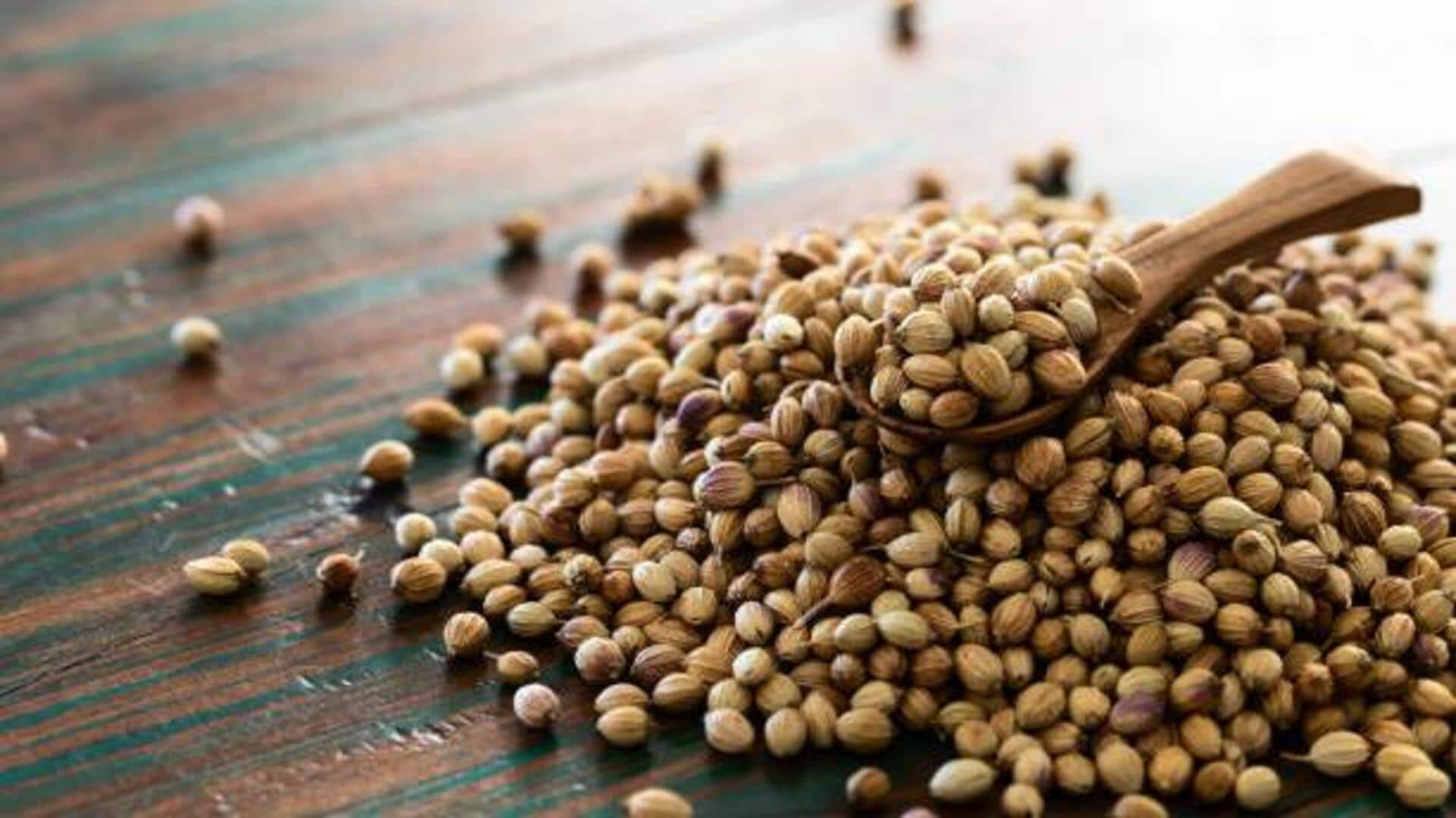
How coriander can ease joint pain
What's the story
Most of the kitchens have coriander, a common spice. But, did you know that coriander can help ease joint pain naturally? Yes! The aromatic flavor of coriander comes from its compounds which may help reduce inflammation and provide relief from discomfort caused by joint problems. Here's how you can include coriander in your routine to keep your joints healthy and pain-free.
Inflammation relief
Anti-inflammatory properties of coriander
Rich in antioxidants and anti-inflammatory compounds, coriander may drastically reduce swelling and pain in joints. These properties are particularly useful for those suffering from arthritis or any other inflammatory disease. By regularly eating coriander, you may notice a decrease in levels of inflammation, resulting in improved mobility and increased comfort. This makes coriander a must-have in a diet meant to combat joint pain.
Dietary inclusion
Incorporating coriander into your diet
Adding coriander to your diet isn't difficult and doesn't have to cost a fortune, either. You can use fresh coriander leaves as a garnish in salads or soups while ground coriander seeds can add flavor to a range of dishes. By including this spice in your meals on a regular basis, you may find gradual improvements in joint health without major dietary changes.
Additional advantages
Potential benefits beyond joint pain
Beyond relieving joint pain, coriander also provides other health benefits that could help indirectly. It may help with digestion, promote heart health by reducing cholesterol levels, and provide essential nutrients such as vitamins A and C. These additional benefits make it a versatile spice that is worth considering on a daily basis.
Usage guidelines
Precautions when using coriander
While coriander is generally safe for most people, it is best to use it in moderation to avoid any adverse effects like allergic reactions or digestive issues. It is advisable to consult with a healthcare professional before making significant dietary changes, particularly for those with existing medical conditions or spice-related allergies.